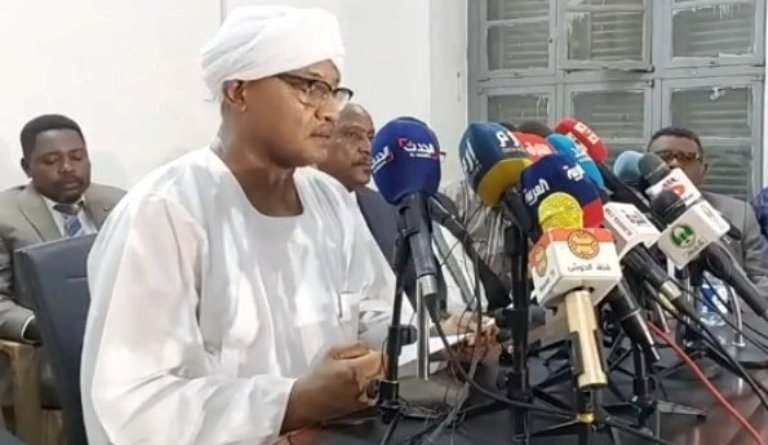Sudan’s FCC say meeting with military leaders aimed to end the coup
June 10, 2022 (KHARTOUM) – The Forces for Freedom and Change (FFC) Friday reiterated they do not seek to restore partnership with the military component but to end the October 25th coup.
For the first time after the coup, delegations from the FFC and the military component held a meeting brokered by Molly Phee U.S. Assistant Secretary of State for African Affairs and Ali bin Hassan Jaffar Saudi Ambassador to Khartoum.
The FFC delegation held a press conference on Friday to inform the Sudanese about the purpose and the outcome of the meeting, which was strongly criticized by discussion groups and social media.
“(The meeting) was not a step for the partnership, but to end it,” said one of the three-member FFC delegation that met the coup delegation together with Al-Wathiq Albreir of the National Uma Party and Taha Ishag of the Sudanese Professionals Alliance.
“We have not gone in search of a new partnership, but to establish a new relationship between the regular forces and the people,” Arman further stressed,
The SPLM-N deputy chairman said there were divergences within the FFC leadership meeting on Wednesday over the proposal made by the US and Saudi diplomats to meet the military leaders because of the continued bloody repression against protesters
However, they decided to meet the coup leaders because they felt it is in the interest of the Sudanese people and because the United States supports the right of Sudanese to civil transition and to reach a solution to end the military coup.
“Our people should not be isolated from the great international solidarity. Also, Saudi Arabia, which is an important and active country in the region, often expressed a willingness to support the Sudanese,” he added.
Saudi Arabia and the U.S. are part of a Quartet supporting the restoration of the civilian-led transitional government. However, the UAE which is part of the group is perceived by the Sudanese as a backer of the junta.
“Our demand is to end the coup and open a new page. If they want to end it, we are here but if they do not want the Sudanese people will continue to resist,” he stressed.
“We don’t want a manipulation of the civilian power. The Prime Minister should belong to the people and does not take his instructions from the army,” further said Arman who served as the political adviser of the former prime minister.
The FFC groups say they do not want to take part in the new civilian government which should be formed of independent and competent people.
The U.S. embassy in Khartoum said the meeting meant to “Exchange views on how to solve the current political crisis, as well as on a process that leads to a democratic transition”.
The two sides named Lt Gen Shames al-Din Kabbashi and Taha Ishag as a point of contact between them, according to Arman.
Al-Wathiq Albreir told reporters that the meeting focused on how to end the coup, why the civil democratic transition had been suspended and the security and socio-economic impacts of the coup.
“We conveyed the aspirations and dreams of the Sudanese people for justice and freedom and affirmed the unity of the revolutionary forces,” further said the secretary-general of the National Umma Party.
He further added they sent a message to the international community that they are not intransigent but seek a peaceful and credible solution leading to genuine and fruitful civilian-led transition.
Ishag, for his part, lambasted the process led by the Trilateral Mechanism saying it was designed to legitimize the military coup and create a new political majority for them.
“We will not be part of any political process aiming at forging a political base supporting the coup d’état. We and the masses of our people stand with a political process that produces full civilian authority, achieves street slogans and gets the military establishment out of political life,” he said.
(ST)

